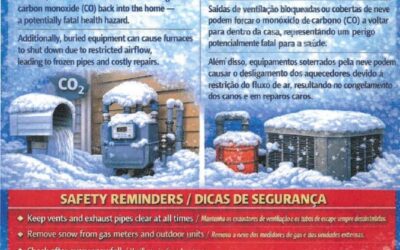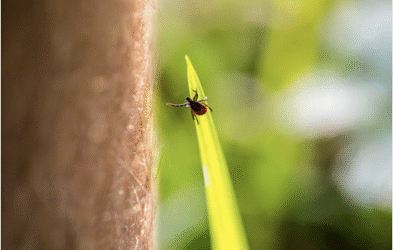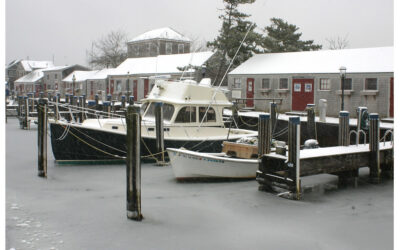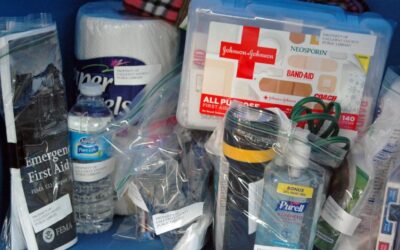Emergency Preparedness for Island Communities
Empowering Martha’s Vineyard and Nantucket residents with essential resources and strategies to stay safe and resilient during public health emergencies.
The Importance of Emergency Preparedness
The Role of Boards of Health
Public Health Emergencies include pandemic or epidemic diseases either through infections or from the spread of a biological toxin. These diseases can cause significant human fatalities or lasting health impacts or disabilities. On Martha’s Vineyard, the joint Boards of Health monitor disease rates, transmission, and prepare for the possibility of a public health emergency.
In addition to viral disease emergencies, our weather and climate can cause a state of emergency. Also given the Vineyard’s location, geography, and limited infrastructure, we are more at risk for extreme climate or weather events. While the Boards of Health do not actively oversee emergency response, they do collaborate with the Dukes County Emergency Management Association on the health-related aspects of emergency response planning. Below are some helpful tips in what to do in an emergency with links to more information.
Strategies for Effective Emergency Preparedness
Preparing for public health emergencies involves several key strategies that every resident should implement:
- Develop a Family Emergency Plan: Ensure that all family members know what to do and where to go in case of an emergency. Designate a meeting place and establish communication methods.
- Stay Informed: Keep up-to-date with local news and public health alerts. Sign up for emergency notifications from local authorities.
- Build an Emergency Kit: Assemble a kit with essential supplies such as water, non-perishable food, medications, and important documents. Make sure to include items specific to your family’s needs.
- Know Your Neighbors: Building a strong community network can provide mutual support during emergencies. Check on elderly or vulnerable neighbors and offer assistance if needed.
- Practice Regular Drills: Conduct regular emergency drills at home to ensure everyone knows the procedures. This can help reduce anxiety and improve response times during a real event.
By implementing these strategies, residents of Martha’s Vineyard and Nantucket can enhance their readiness and resilience in the face of public health emergencies.
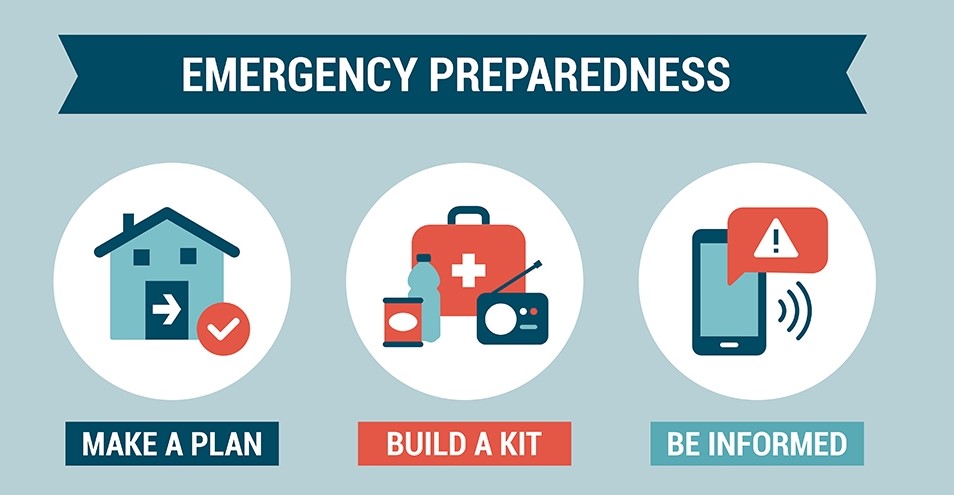
Emergency Management Links
MA Department of Public Safety
Information about extended power outages, flood preparedness, and more
MA Department of Health Website
Information about precautions during extreme heat conditions
Dukes County Emergency Management Association
Information about hurricanes, extreme winter weather, and more
Emergency Preparedness News
Winter Safety Information | Informações de Segurança no Inverno
Winter Safety Information | Informações de Segurança no Inverno Click> Winter Safety in English & Brazilian Portuguese PDF
Chicken flock depopulated due to Highly Pathogenic Avian Influenza (HPAI)
For Immediate Release January 6, 2026 Subject: Chicken flock depopulated due to Highly Pathogenic Avian Influenza (HPAI) Dukes County, MA – After receiving a confirmatory test...
The Tall Tick Tales
Debunking Common Tick Myths Ticks have become a fact of life on Martha’s Vineyard, but unfortunately, so has the misinformation about them. From unproven extermination remedies...
Life on Martha’s Vineyard and Nantucket for Year-Round Residents: The Role of Public Health Departments
Life on Martha’s Vineyard and Nantucket is often associated with picturesque beaches, historic lighthouses, and a vibrant seasonal tourist economy. However, for the year-round...
Recommendations for Emergency Preparedness Kits
Living or vacationing on Martha’s Vineyard or Nantucket offers the beauty and tranquility of island life, but it also brings unique challenges, especially when it comes to...
Emergency Preparedness FAQs
Find answers to common questions about preparing for public health emergencies.
What should be included in an emergency kit?
An emergency kit should include water, non-perishable food, a flashlight, batteries, a first aid kit, medications, and important documents. Learn more about creating your emergency kit.
What are the steps to create a family emergency plan?
Discuss potential emergencies, designate meeting places, and ensure everyone knows how to contact each other. Practice your plan regularly.
How can I stay informed during an emergency?
Stay informed by signing up for local alerts, following official social media accounts, and listening to local news and weather reports.
How can I help my community during a public health emergency?
Volunteer with local organizations, donate supplies, and share accurate information to help others stay informed and prepared.
What should I do if I have a medical condition during an emergency?
Ensure you have a supply of your medications, keep a list of your medical conditions and treatments, and inform emergency responders of your needs.
Are there resources for pet emergency preparedness?
Yes, include pet food, water, medications, and identification in your emergency kit. Make a plan for your pets in case you need to evacuate.
How can I prepare for a power outage?
Have flashlights, batteries, a battery-powered radio, and a supply of non-perishable food and water. Know how to manually open your garage door.
What should I do if I am instructed to evacuate?
Follow official instructions, take your emergency kit, lock your home, and use designated evacuation routes. Inform family and friends of your plans.
Where can I find more information on emergency preparedness?
Visit islandspublichealth.com and follow our social media channels for the latest updates and resources on emergency preparedness.

